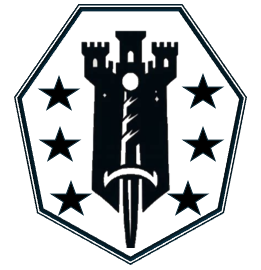While examining Turkey’s long history along with its current geopolitical Influence, economic growth, and military power, it’s not a difficult prediction to say that Turkey is poised to claim the world superpower title.
Turkey has managed to transform its global image over the past decade, going from attempting to find its identity as a country with a large Muslim population becoming more aligned with the western worldviews as a NATO member, to positioning itself as a rising power on the global stage. Despite initial predictions of decline after the Cold War, Turkey has defied expectations and emerged as a force to be reckoned with. How the U.S. decides to handle this relationship will shape human history forever.
Geopolitical influence
Turkey’s capital is Ankara which literally means “anchor” in Greek. Contrary to expectations following the Soviet Union’s collapse, Turkey’s strategic and geographic significance did not diminish but increased. It has emerged as a crucial entity in Europe, the Middle East, and beyond. Its geographical position at the nexus of Europe, Asia, and the Middle East provides it with distinctive geopolitical leverage. Having not only the second largest army in NATO, it is also home to the sixth largest navy among NATO countries, even surpassing the U.K.
Economic growth
Turkey is recognized for having one of the world’s most rapidly expanding economies, even in the face of financial turmoil, natural disaster recovery, and regional conflicts. In 2021, Turkey boasted the world’s fastest-growing economy with an annual GDP growth rate of 11%, as reported by invest.gov. The nation saw a substantial economic expansion of 4.5% in 2023, which has bolstered its global influence.
Middle East influence
Turkey has been increasingly asserting its influence in the Middle East and Central Asia by leveraging its geographic location, straddling both Europe and Asia. Turkey has shifted its foreign policy from a primarily Western-focused orientation to a more regionally balanced approach under the leadership of President Erdogan, while adopting a more autonomous and assertive foreign policy known as “neo-Ottomanism.” This approach is inspired by the historical legacy of the Ottoman Empire, which once governed extensive regions across the Middle East, North Africa, and Eastern Europe.
This policy shift would account for its Involvement with its neighbors, while acting as a mediator in disputes and has contributed to the region’s stability.
Muslim influence
Turkey, as the most prominent Muslim-majority nation, exerts considerable influence throughout the Islamic world.
Its blend of democratic governance and economic prosperity serves as an inspiration for reformers in Arab nations.
NATO and EU influence
Turkey has capitalized on its independent strengths despite being sidelined from certain roles within NATO and the European Union. Turkey decided to push back on NATO in 2024 with the accession of Sweden. This caused many in the EU as well as NATO to question Turkey’s place in the organizations.
Military power and capabilities
Its military prowess and strategic position are increasingly recognized. Having not only the second largest army in NATO, it is also home to the sixth largest navy among NATO countries, even surpassing the U.K.
Key take away.
Recent tensions between America and Turkey have arisen due to various factors, including military interventions, democratic governance, and human rights issues. As America’s foreign power and influence in the Middle East appear to be waning, Turkey seems ready to step into the resulting power vacuum. Concurrently, as America transitions its military focus from counterinsurgency to large-scale conflict, recognizing the foreign policy challenges of potential global superpowers becomes crucial for enhancing military training preparations.
~Gen Six Solutions
